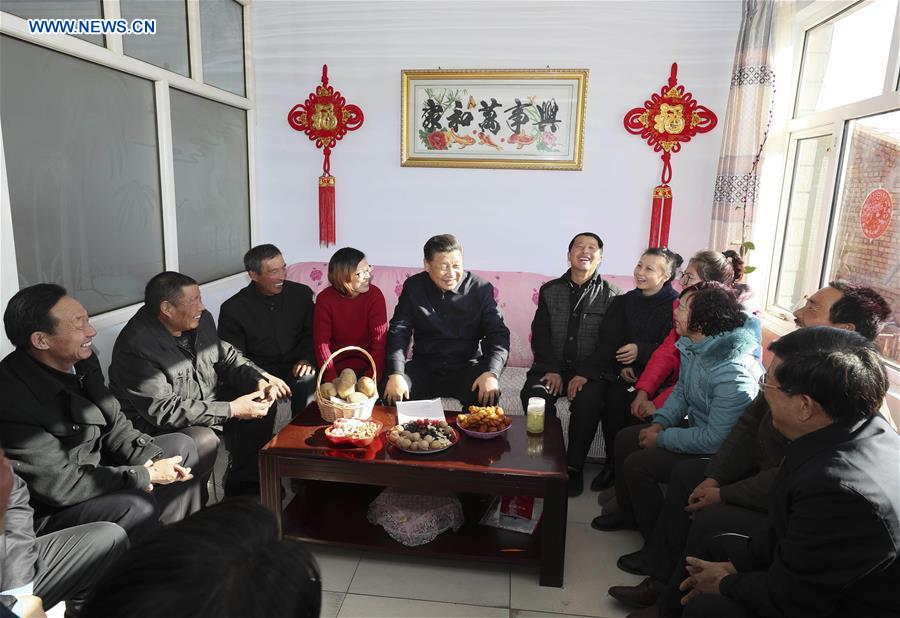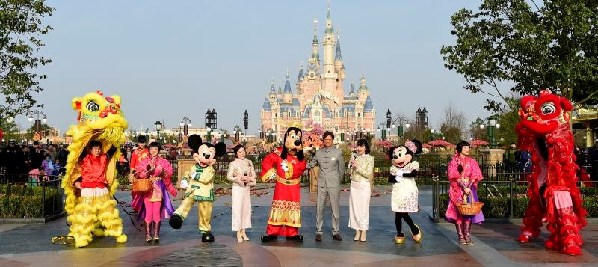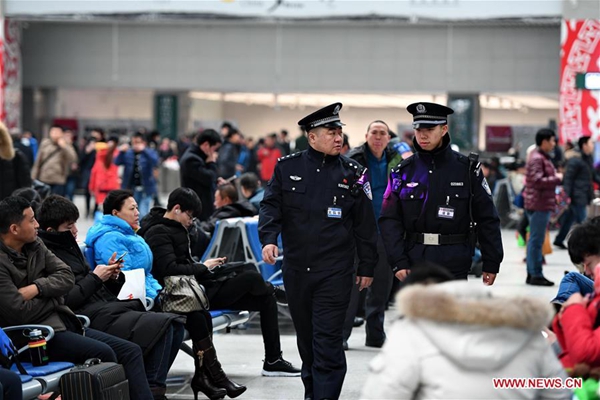As most Chinese are busy preparing for Spring Festival, China’s top leader this week was in the snow-covered grassland of northern China, facing the country’s arch enemy.
|

|
| Chinese President Xi Jinping talks with villagers and local cadre at the home of villager Xu Haicheng in Desheng Village, Xiaoertai Township of Zhangbei County in north China’s Hebei Province, on Jan. 24, 2017. Xi Tuesday pushed for increased efforts on poverty alleviation during an inspection tour to the city of Zhangjiakou. (Xinhua/Lan Hongguang) |
For the fifth year in a row, Xi Jinping’s New Year inspection tour had taken him to the front lines of China’s war against poverty.
This time, the battleground was Desheng, a small village in Zhangbei County, Hebei Province.
Left out of China’s headlong rush to riches following decades of economic reform, Zhangbei — just 200 kilometers north of Beijing — has been classed as a deprived county since 2013, with one eighth of its population still living on less than one dollar a day by October last year.
Fighting poverty is the fundamental task in building an all-round moderately prosperous society,” Xi told villagers in Desheng days ahead of the traditional Chinese New Year.
China is striving to become “Xiaokang,” or a moderately prosperous society in an all-round way, by 2020, just before the centennial anniversary of the founding of the ruling Communist Party of China (CPC).
One aim is to make sure that those yet to be lifted out of poverty, about 45 million by 2016 year-end, could take their rightful place as citizens of a well-off society with the rest of the nation.
In Xi’s own words, “no one should be left behind.
Though Xi’s words hardly deviated from what had been said on previous occasions, the timing nonetheless gave them a little extra weight.
Chinese leaders have made it a tradition to visit ordinary people in both urban and rural areas ahead of Spring Festival.
Xi himself visited Gansu Province and Beijing in early 2013, north China’s Inner Mongolia Autonomous Region in 2014, northwest China’s Shaanxi Province in 2015, and east China’s Jiangxi Province in 2016.
Most of the places he has visited during the festive seasons have been locked in a relative development backwater.
Xie Chuntao, a professor from the Party School of the CPC Central Committee, said Xi’s new year visits underscored the current leadership’s greater commitments to achieving “Xiaokang.”
His words were echoed by Xu Yaotong from the Chinese Academy of Governance.
“Xi is first and foremost concerned with ‘Xiaokang’ of all Chinese people,” said Xu.
In addition to inspection tours, Xi has raised poverty alleviation with national lawmakers during the annual March sessions of the top legislature.
The country’s 13th Five-Year Plan, which outlines priorities for national development from 2016 to 2020, also proposes support for poor villages to develop signature products and services.
In early December, guidelines were issued calling for enhanced collaboration between developed eastern regions and under-developed western regions to bridge the regional development gap and meet 2020 poverty-reduction targets.
Already, all these efforts have been translated into encouraging signs of achievements. China had seen its rural population living in poverty decrease from 770 million to 55.75 million between 1978 and 2015.
An additional 10 million people shook off poverty last year, and China is aiming to help at least another 10 million become members of the well-off society this year.
In Zhangbei alone, 20,700 of its 372,000 residents were lifted out of poverty in 2016. Thanks to a major poverty-alleviation program, the county is receiving support, including measures to promote profitable agricultural products and emerging industries such as solar power.
But as Xi himself admitted in Hebei this week, “poverty alleviation is getting more and more difficult as it progresses to the end,” Xi said.
Nonetheless, he insisted that local Party and government authorities must make sure that all must be lifted out of poverty “in time.”
He stressed the importance of making sure every poor family had a program for increasing their income and every poor person had a way of casting off poverty.
The president pointed to relocation as an important supplementary approach when fighting poverty and highlighted the role of ecological compensation, which would not only help improve the ecological environment but also boost incomes.
Stressing the importance of education in poverty alleviation, Xi said, “Making sure children of impoverished families enjoy access to high-quality education is a fundamental solution to poverty.”
Xie Chuntao agreed. “If we compare China’s development to a wooden bucket, the amount of water a bucket can hold is determined by its shortest plank,” Xie said, adding that poverty is one of the short planks.
“President Xi has just spelt out the way to fix those short planks,” he said.


